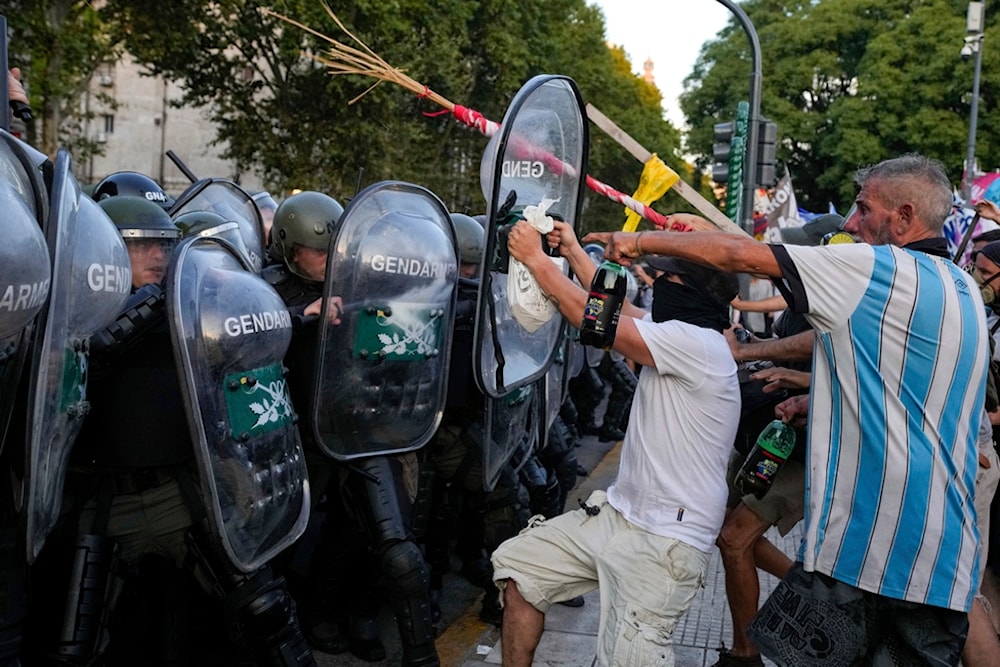15 injured, 2 detained in Argentina anti-government protests
Protesters continued demonstrating after police authorities fired rubber bullets and gas on them, as well as assaulting them with batons.
-

Anti-government protesters charge against police deployed outside Congress where lawmakers are debating a bill promoted by Argentine President Javier Milei, in Buenos Aires, Argentina, Thursday, February 1, 2024. (AP)
On the second day of anti-government protests in Argentina, 15 were injured and two others were detained in front of Congress, where President Javier Milei's reforms had been laid for consideration, local media reported.
Sputnik reported that authorities had interfered and assaulted protesters using batons, rubber bullets, and gas after protestors blocked the roads, causing traffic. However, protesters were not deterred and continued protesting in front of the congressional building while lawmakers decided whether or not Milei's reforms would be approved.
In Argentina, police fired rubber bullets from bikes into a crowd of protesters.
— S p r i n t e r (@Sprinter99800) February 2, 2024
The security forces brutally dispersed the protest near the walls of the Argentine Congress, and there were practically no arrests - the police detained only three people. But rubber bullets and… pic.twitter.com/6PoL8OwL1Z
This comes after Congress Speaker Martin Menem revealed that the presidential commandment consideration would resume on Friday. "The proposal to adjourn has been approved, the session will resume tomorrow at 10:00 [13:00 GMT]," he said.
Milei orders the deregulation of the economy
Argentina has seen several anti-establishment protests as Javier Milei took office and proposed a series of reforms that sought to privatize and dollarize the economy amid the recession, devaluation of the currency, and a halt in growth.
Milei revealed a series of measures to deregulate the country's struggling economy, eliminating or changing more than 300 regulations via presidential decree, including on rent and labor practices. The legislation was passed, but still relies on parliamentary approval, with a possibility of a veto from Congress.
Under Argentine law, there are provisions for both binding and non-binding referendums, referred to as "public consultations." However, only the National Congress holds the authority to initiate a binding referendum. If a non-binding proposal from the executive branch is approved through a plebiscite, the parliament is obligated to consider it.
"They cannot accept that they lost, that the population chose something else," Milei said of the opposition in the National Congress. He claimed some lawmakers were "seeking bribes," but did not provide details to back up the allegation.

 2 Min Read
2 Min Read








